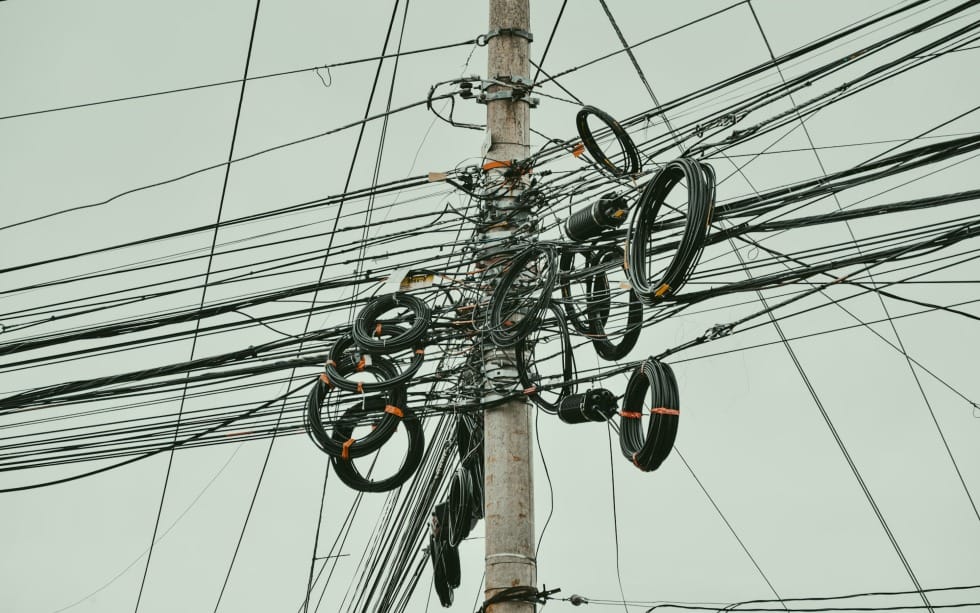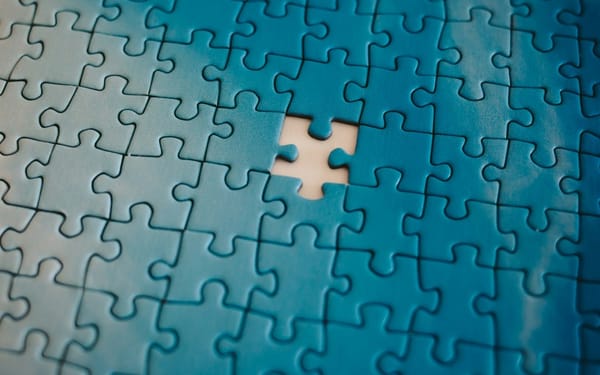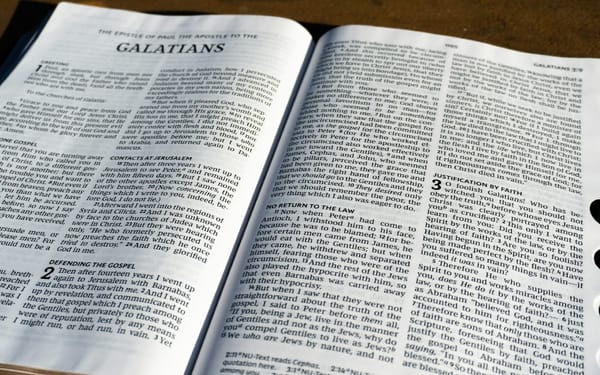What If My Family Is a Mess?
The opposite of love isn't hate; it's not caring.

I’m always hesitant to write using myself as an illustration. I think authors who do this too much wear out their welcome. But I also feel that in this series on family relationships, it is important to be a bit vulnerable because there’s a good chance your family dynamics aren’t perfect.
In an age of rushing and doing, it’s easy for some to view family as an impediment. Ambitious executives look at time spent with family as a personal sacrifice. Even those involved in full-time Christian ministry struggle to know what to do with family. Such was my dad’s story.
The youngest of six children, Dad grew up to become an ambitious pastor who dreamed of starting his own church. More specifically, he dreamed of starting one in a town called Cochrane, Ontario. The only problem was that Cochrane was six miles beyond nowhere. It’s literally the end of the road in that part of Canada. If you want to keep going north, you’ll need a train, plane, or pet moose.
But in 1994, my family made the move, and we embraced life in the Great White North. The good news was that land was so cheap that they were almost giving it away. For a mere $45,000, my parents purchased a 160-acre farm with a ranch-style home, a barn, and a shed.
At first, life was good. Dad was happy to be where he felt God wanted him, and after a rough year of adjustment, my family developed a nice network of friends and settled into the community. I’ll avoid airing my family’s dirty laundry, but let’s just say over the next few years, my dad made some very poor choices. By 2004, I was begging my mom to leave.
Growing up in a conservative Christian upbringing that said couples should stay together at all costs, Mom wrestled with this decision. But in April of that year, we left Cochrane for good. I’ll never forget that day.
I packed the car while Dad was at work, and this was more difficult than it sounds. Living in northern Canada, we had this thing called snow. And because there were few trees near our house, our six-hundred-foot driveway was always on the receiving end of massive snow drifts.
Unfortunately, Dad wasn’t big on snowplows, and with a driveway over six hundred feet long, this meant getting home required the skill of a Formula 1 driver. Every time someone started down our lane, my siblings and I took bets on whether they’d make it to our house without getting stuck. They often didn't, which meant we were on pit crew duty. Throwing on our hats and gloves, we rushed outside to give them a hand and shovel them out.
By spring 2004, our driveway had turned into a sloshy mess. Not wanting to risk getting stuck, we parked our vehicle at the end of the drive, and I used my snowmobile to transfer our belongings from the house to the van. After several hours, I had everything packed.
My mom, younger sister, and I loaded into our Pontiac minivan and headed down Highway 11 toward America. As we drove away, I wasn’t sure what to expect next. What would Dad do when he found out we weren’t coming back? Would he get angry? Would he apologize? Would he change?
Nothing
But as it turned out, none of these things happened. Sure, Dad wasn’t happy we’d left, but I’d say he was more embarrassed than anything. He made it clear he wasn’t going to chase after us.
In his mind, I think he thought he was the one who was oppressed. Rather than going to marriage counseling and confronting his destructive behaviors, Dad threw himself deeper into pastoral ministry, even speaking on numerous Christian radio programs in Canada and the US. To Dad, he had a calling from God, and he was going to follow that calling, regardless of the costs.
The summer after we left, my family returned to Cochrane with a U-Haul to pack up a few more belongings. As we arrived, we discovered Dad had turned our home into a mini boarding house for young men. This meant all the toys and possessions we’d left behind were now being used by someone else. It's funny how certain moments stick in your mind. One of them occurred as we prepared to load our truck. I looked up to see a young guy riding a bike down the driveway.
The bike was mine, but I didn’t care about that. The worst part was that this boy was wearing my hat—my special hat—a white and blue one with the word “Suomi” (the word for Finland in Finnish) across the top. My grandparent-like neighbors, who were immigrants, had given it to me as a gift, and seeing this imposter casually roll into our home as though it were his felt like a case of stolen identity.
It'd be more dramatic to say I leaped to my feet, punched the boy in the mouth, and told him never to take my stuff again. But it wasn’t his fault, and in that moment, all I had were feelings of profound sadness. Sadness for what could have been but never was.
Then there was that other memory, over a decade later, when I returned to Cochrane as an adult. Just as when I’d left, it was springtime, so I had to park my car at the end of the drive and walk the rest of the distance to the house on foot. After I knocked on the front door, Dad answered and warmly invited me to come inside and have a seat.
As I did, he looked a bit perplexed and, after a few seconds, said, “Glad you’re here. But tell me, what is your name again?” That question told me all I needed to know about the state of our relationship.
So, What Does This Mean for Me?
Sometimes it’s said that the opposite of love is hate. But I don’t think that’s true because even hate expresses misplaced lament about a relationship that isn’t what one would like. Instead, I think the opposite of love is not caring.
In the years after our family left, I reached out to Dad from time to time to see if maybe there was a twinge of remorse and a path to family restoration. But each time I did, he would reiterate that these were the happiest days of his life and go on to tell me all about the church projects he was involved in. And he did a lot.
In over forty years of Christian service, he spoke in more churches than I could count, spent more time memorizing scripture than I’ll probably ever do, and talked to more people about Jesus than I possibly ever will. But I didn’t care. Because all I ever wanted was a dad who did.
Here is why I share this story.
Recently, I spoke with an aspiring author who has had terrific success in the real estate market. Working through his bio, I couldn’t help but be impressed by all his accomplishments. But tucked away on the second page, almost as a footnote, there was this little line that read something like, “Unfortunately, my success came with a cost, and I wasn’t a good father or husband.” What gripped me about this statement was that it was so casual–almost a throwaway line.
I write this not to make you feel guilty. Maybe you messed up as a parent, maybe you're a lousy sibling, or maybe you've treated your parents poorly. God knows we all have made some family mistakes.
But if this is where you're at, what are you going to do about it? Have you tried to make your wrongs right? Are you committed to change? Do you care?
Caring doesn't fix every family challenge, but it's a solid start. Setting aside abusive situations, if you have a relationship in your life worth saving, don't get lulled into the trap of apathy. Don't assume that the only pathway to restoration is if the other person meets you on your terms. Instead, develop the Philippians 2 mind of Christ and look for opportunities to meet your family members where they are.
Care.





